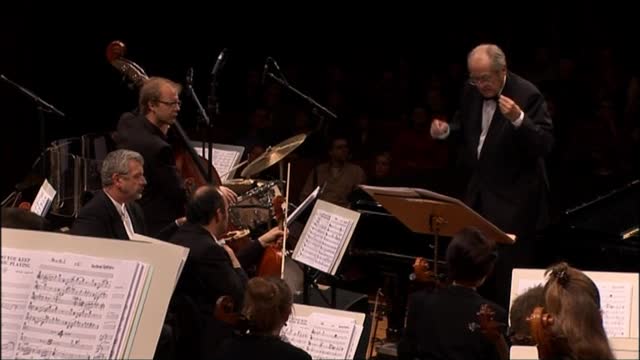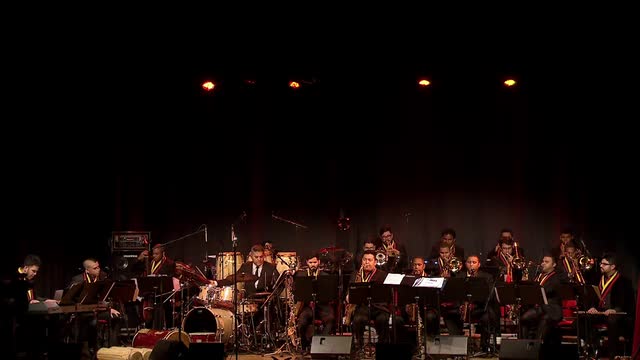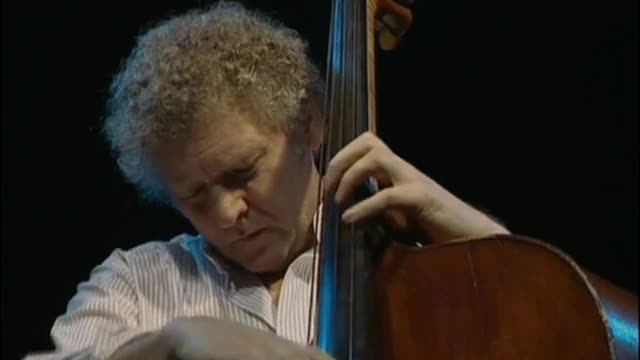Miles Dewey Davis was born on 25 May 1926 in Alton, Illinois, growing up in East St Louis, Illinois. While his mother had hoped that he would play classical violin, Davis was given a trumpet by his father for his thirteenth birthday. Early on, he considered his early influences to be Bobby Hackett (loving his lyrical solo on the 1938 recording of “Embraceable You”), Harry James and Clark Terry.
Davis played with his high school band, worked locally with Eddie Randall’s Blue Devils during 1941–43 and had an opportunity to sit in with the Billy Eckstine Orchestra in 1944, a legendary big band that included Dizzy Gillespie and Charlie ‘Bird’ Parker. Although his own technique was faulty at this point, Davis worked hard to master bebop, trying to play like Gillespie.
After graduating from high school, he moved to New York in September 1944 to study at Juilliard but was soon spending more time in clubs on 52nd Street and he dropped out of school after a few months. He found Charlie Parker, worked a bit with Coleman Hawkins and made his recording debut on 24 April 1945, sounding nervous on a date backing singerdancer Rubberlegs Williams. Although Davis was not quite ready for the big time yet, Charlie Parker saw his potential and used him on a record date later in the year that included the original versions of “Now’s The Time” and “Billie’s Bounce”.
By then, Miles Davis was realizing that he was never going to be another Dizzy Gillespie. He sought to find his own way and came up with a quieter cooler-toned variation of bebop. He stripped the bebop vocabulary to its essential and made every note count, using silence effectively. This process took a couple years but started becoming influential by 1947.
After Davis had had a stint with Benny Carter’s Orchestra, he worked on the West Coast with Parker. He became an official member of Bird’s quintet during 1947–48, a group also including pianist Duke Jordan, bassist Tommy Potter and drummer Max Roach. Davis’ quiet and thoughtful approach contrasted well with Bird’s exciting virtuosity.
While he was still a member of the Parker Quintet, Davis made his first serious stab at leading his own band. He had become fond of the sound of the Claude Thornhill Orchestra, a big band that used French horn and tuba as part of its tonal colours. Gil Evans was Thornhill’s most adventurous arranger and, after they met, Davis and Evans became best friends. Along with baritonist Gerry Mulligan, they decided to form a smaller version of the Thornhill band but one that was more bop-oriented. The resulting Nonet and its dozen recordings became known as “The Birth Of The Cool.”
| Title | |
| LEGRAND, Michel: Live in Brussels | |

|
LEGRAND, Michel: Live in Brussels
Composers:
Davis, Miles -- Legrand, Michel
Artists:
Egea, Claude -- Flemish Radio Orchestra -- Komac, Jean-Philippe -- Legrand, Michel -- Meschinet, Herve -- Michel, Catherine -- Nolf, Bart De -- Verbraken, Peter
Label/Producer: EuroArts |
| SIMON BOLIVAR BIG BAND | |

|
SIMON BOLIVAR BIG BAND
Composers:
Davis, Miles -- Dennis, Matt -- Ellington, Duke -- Monk, Thelonious -- Morean, Carlos -- Nestico, Sammy -- Romero, Aldemaro -- Weiner, Andy
Artists:
Briceno, Andres Eloy -- Brito, Genesis -- Occeas, Maria Beatriz -- Sierra, Ocmaly -- Simon Bolivar Big Band
Label/Producer: EuroArts |
| VITOUS, Miroslav: Live in Vienna (2005) | |

|
VITOUS, Miroslav: Live in Vienna (2005)
Composers:
Davis, Miles -- Vitous, Miroslav -- Young, Victor
Artist:
Vitous, Miroslav
Label/Producer: Music Video Distributors |
